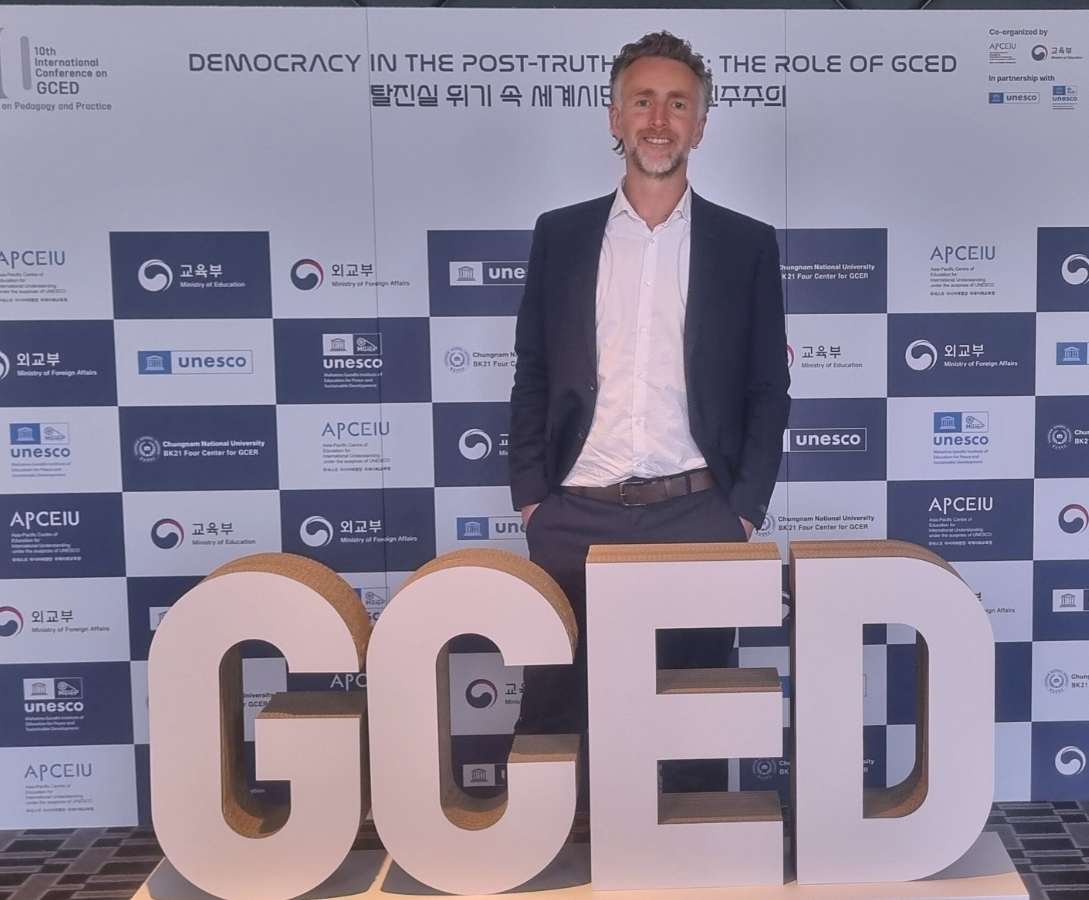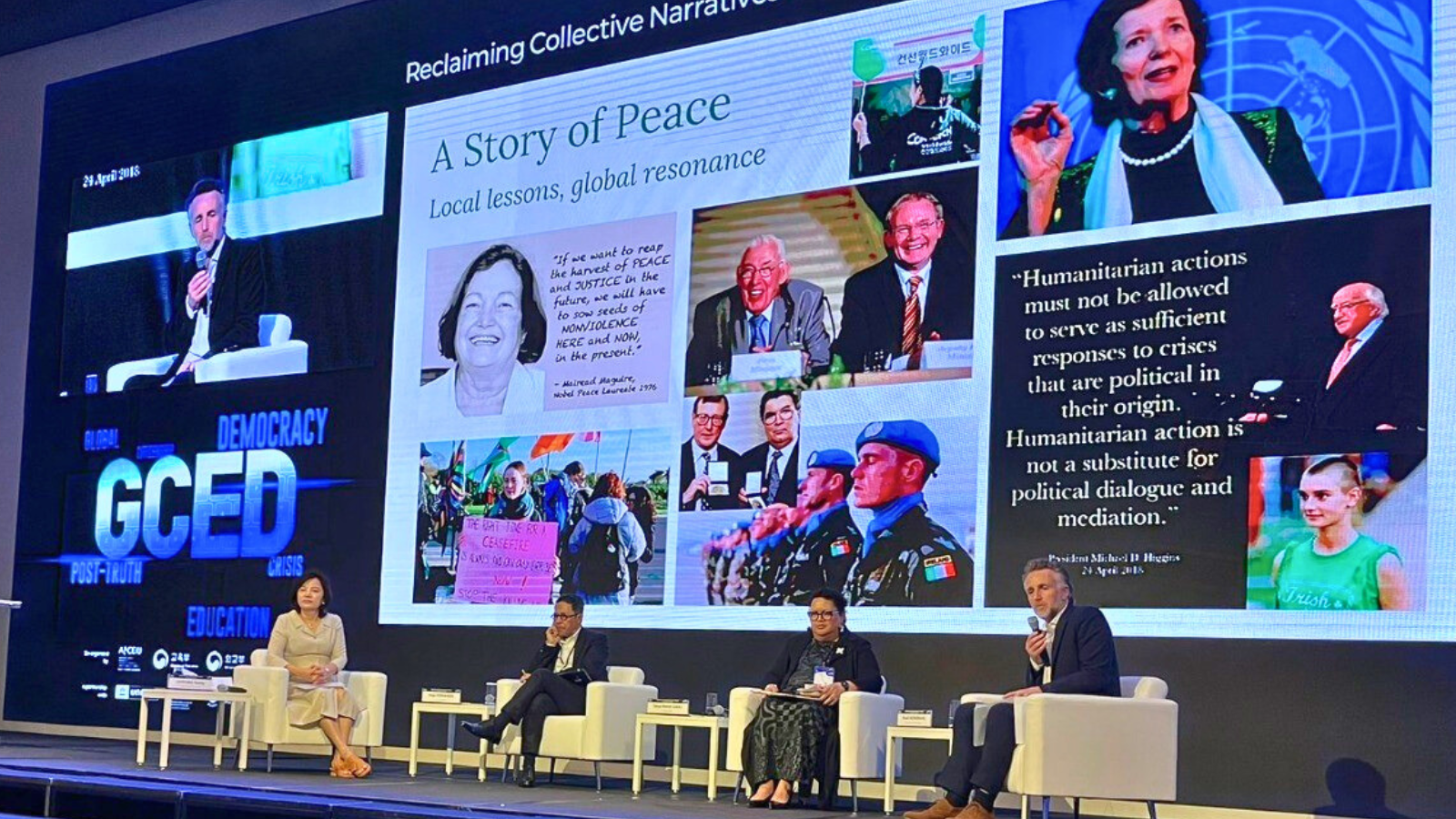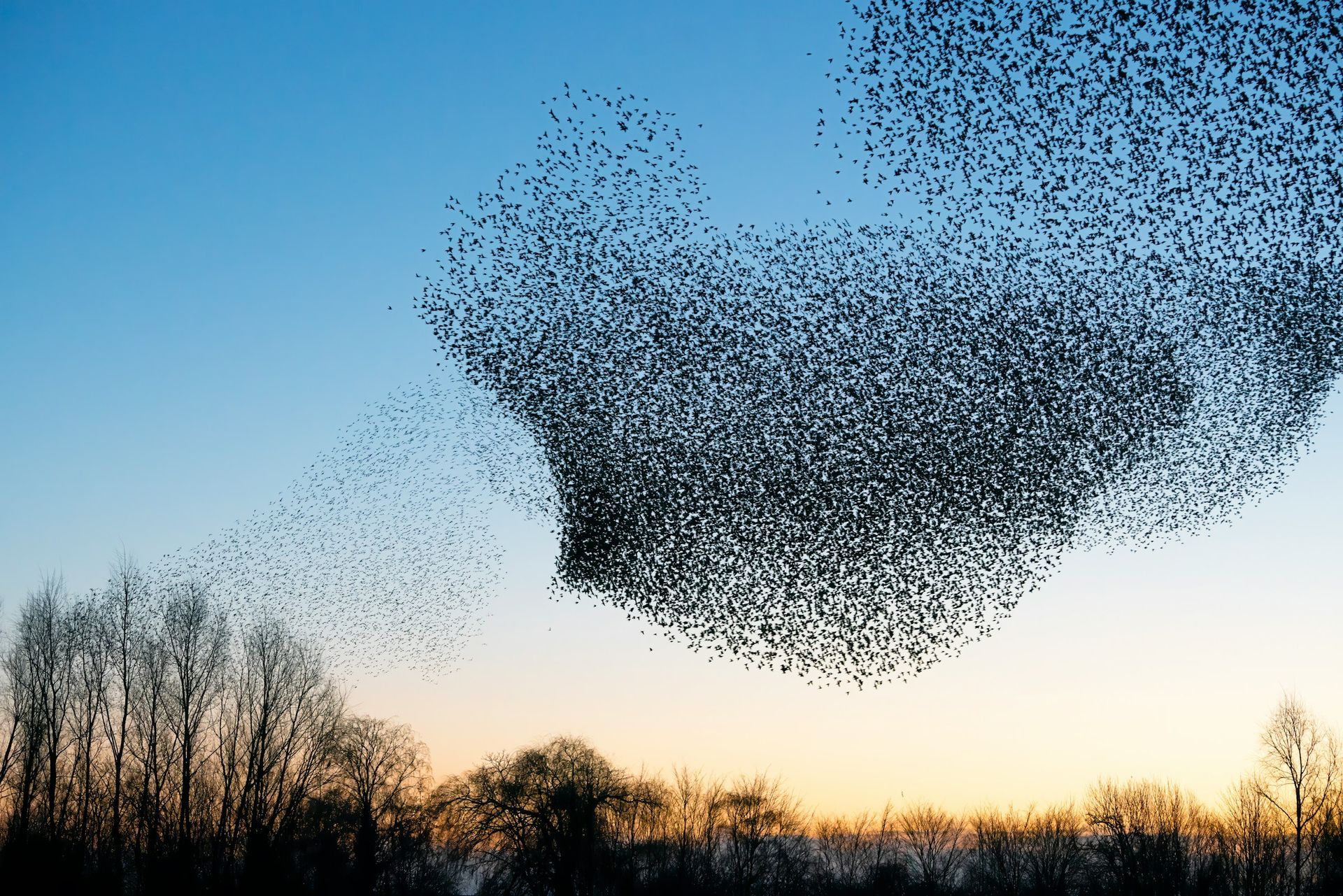IDEA CEO Addresses Major International GCE Conference in Seoul
IDEA CEO, Ruairí McKiernan, was among the speakers at the recent 10th International Conference on Global Citizenship Education (IConGCED) in Seoul, co-organised by APCEIU (the Asia-Pacific Centre of Education for International Understanding under the auspices of UNESCO), the Korean Ministry of Education, the Ministry of Foreign Affairs, and UNESCO. The conference brought together more than 350 participants from 51 countries under the theme “Democracy in the Post-Truth Crisis: The Role of GCED.” Ruairí was the only Irish speaker, sharing perspectives shaped by Ireland’s history of conflict, peacebuilding, and global solidarity.

Flying the Irish flag in Seoul
In his contribution, Ruairí spoke about the urgency of defending democracy and peace in an era of rising disinformation, authoritarianism, and conflict. Drawing on his experience of growing up near the Irish border, he reflected on how easily peace can be undermined. He pointed to the dangers posed by racist anti-migrant campaigns and the war in Palestine as stark reminders of the need to protect human rights and international law.
“Hard-won peace can never be taken for granted,” he told delegates. “We must invest in peace with greater determination than is invested in war. That means dialogue, empathy, education, critical thinking, courage, and compassion.”
Ireland’s commitment to solidarity
He also highlighted Ireland’s long tradition of solidarity and global engagement. He praised the commitment of Irish Aid, championed by Minister Neale Richmond, and acknowledged the work of NGOs such as Concern Worldwide, which maintains an office in South Korea. “Ireland’s national consciousness is rooted in empathy, resistance, and solidarity,” he said. “That is why Global Citizenship Education is so central to who we are as a people.”
A vibrant GCE sector in Ireland
Ruairí spoke about Ireland’s vibrant Global Citizenship Education sector and the dedication of the many organisations and educators who sustain it. He outlined IDEA’s role as the national platform for this work, including the IDEA Code of Good Practice which supports quality, coherence, and accountability across the sector. He highlighted the importance of Irish Aid’s GCE Strategy, the Shared Island cross-border initiatives, and the Dublin Declaration on Global Education to 2050, all of which place Ireland among the leading countries advancing GCE at national and international levels. He emphasised that the strength of Ireland’s sector lies in its collaboration and its ability to connect local realities with global justice issues.
A meeting of nations and ideas
The conference created valuable opportunities to connect with international leaders, NGOs, and academics from across the Asia-Pacific and beyond. These exchanges further strengthened IDEA’s role in advancing Global Citizenship Education on a global stage.
Ruairí also met with Ambassador Michelle Winthrop at the Irish Embassy in Seoul to discuss Ireland’s investment in international development and multilateralism. He learned more about the work of Concern Worldwide in Korea, and about the remarkable role played by Irish missionaries and humanitarians who dedicated themselves to Korea, including during the Korean War. Many lost their lives while working among the poor, while others are still alive and serving today. This history of sacrifice and solidarity further underlines Ireland’s global footprint and reputation for standing with those in need.
This was Ruairí’s first return to Korea since taking part in the Korea Foundation leadership programme in 2013. Reflecting on Korea’s remarkable journey from war to democracy, he said: “It is powerful to imagine Ireland and South Korea standing together on the world stage - as champions of inclusive, thriving democracies.”
Why it matters for IDEA
For IDEA and its members, the conference reinforced the vital role of Global Citizenship Education in building resilience against disinformation, polarisation, and democratic decline. It also showcased Ireland’s contribution - through policy, practice, lived experience, and humanitarian legacy – to the global GCE community.
As Ruairí concluded in Seoul: “If ever there was a moment for courage and leadership, it is now. Let us be the voice of peace and show that even in the darkest times, peace is always possible.”









